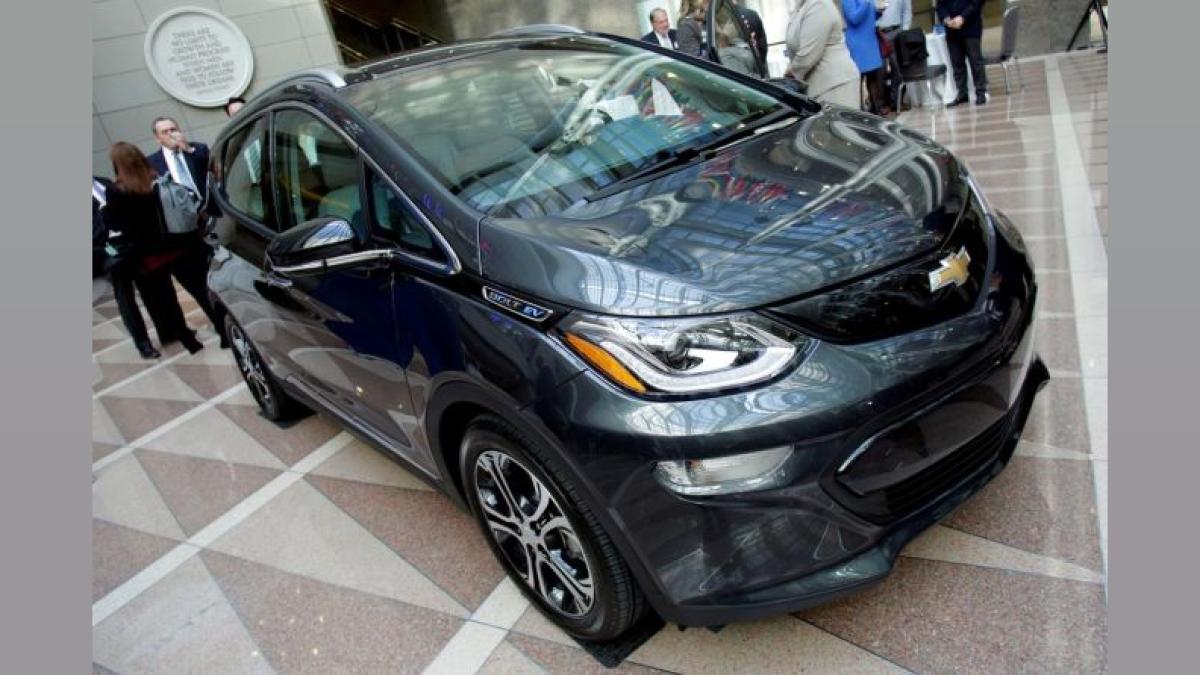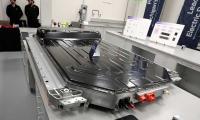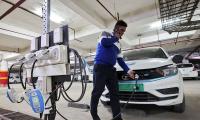BMW India Head: Duty Rationalization Key for Tech Adoption
BMW India President Vikram Pawah emphasizes the need for duty structure rationalization to accelerate adoption of new technologies like EVs, ensuring a level playing field for all players.

Photograph: Yuri Gripas/Reuters
New Delhi, Jan 11 (PTI) Rationalisation of the duty structure is critical for the fast adoption of new technologies, including electric vehicles, BMW Group India President Vikram Pawah said on Thursday.
He stressed on a level-playing field in terms of taxation for the existing as well as for new players who seek to foray into the country.
"Our ask from the government has always been that if you want faster adoption of new technologies, and then localisation, there needs to be some rationalisation of the duty structure," Pawah told reporters here.
If the duties were less, it will allow the companies to bring in products and offer it to the customer at the right price, he added.
After demand creation, the products could be localised as BMW has been doing since commencing operations in the country, Pawah said.
"Every product that we bring in, initially we try to bring in as CBU, and when the demand grows, we immediately localise it," he added.
At present, cars imported as Completely Built Units (CBUs) attract customs duty of 60-100 per cent, depending on the engine size and Cost, Insurance and Freight (CIF) value less or above USD 40,000.
When asked about talks on giving some concessions to a US based EV major, Pawah said, "We don't prescribe any kind of preferential treatment. There should be a level-playing field for all whether it's a new entrant, or entrant who's been in the market for the last two decades."
There needs to be a level-playing field for not only the EV segment but for all segments, he noted.
"It's not just the EV technology. There's going to be hydrogen technology tomorrow. There's going to be other technologies there, which are more cleaner, more safer," Pawah said.
BMW continues to invest in new technologies without any incentive, he noted.
The luxury car industry continues to remain minisicule in India, currently accounting for just over 1 per cent of the overall passenger vehicle volumes annually.
On business outlook for the current year, he noted that the overall economic outlook and consumer sentiment continues to be robust, which is a good sign.
"And combined with the product lineup that we have now, with fully availability of all the new products that we already launched in 2023 and the 19 products that we will launch in 2024 that gives us even a higher level of confidence of continuing this solid growth in 2024 as well," Pawah said.
He stressed on a level-playing field in terms of taxation for the existing as well as for new players who seek to foray into the country.
"Our ask from the government has always been that if you want faster adoption of new technologies, and then localisation, there needs to be some rationalisation of the duty structure," Pawah told reporters here.
If the duties were less, it will allow the companies to bring in products and offer it to the customer at the right price, he added.
After demand creation, the products could be localised as BMW has been doing since commencing operations in the country, Pawah said.
"Every product that we bring in, initially we try to bring in as CBU, and when the demand grows, we immediately localise it," he added.
At present, cars imported as Completely Built Units (CBUs) attract customs duty of 60-100 per cent, depending on the engine size and Cost, Insurance and Freight (CIF) value less or above USD 40,000.
When asked about talks on giving some concessions to a US based EV major, Pawah said, "We don't prescribe any kind of preferential treatment. There should be a level-playing field for all whether it's a new entrant, or entrant who's been in the market for the last two decades."
There needs to be a level-playing field for not only the EV segment but for all segments, he noted.
"It's not just the EV technology. There's going to be hydrogen technology tomorrow. There's going to be other technologies there, which are more cleaner, more safer," Pawah said.
BMW continues to invest in new technologies without any incentive, he noted.
The luxury car industry continues to remain minisicule in India, currently accounting for just over 1 per cent of the overall passenger vehicle volumes annually.
On business outlook for the current year, he noted that the overall economic outlook and consumer sentiment continues to be robust, which is a good sign.
"And combined with the product lineup that we have now, with fully availability of all the new products that we already launched in 2023 and the 19 products that we will launch in 2024 that gives us even a higher level of confidence of continuing this solid growth in 2024 as well," Pawah said.
You May Like To Read
TODAY'S MOST TRADED COMPANIES
- Company Name
- Price
- Volume
- Vodafone-Idea-L
- 11.65 (+ 3.56)
- 106772451
- Alstone-Textiles
- 0.28 ( -3.45)
- 44187760
- Mangalam-Industrial
- 0.88 ( -2.22)
- 39177573
- Sunshine-Capital
- 0.27 (+ 3.85)
- 35956340
- GMR-Airports
- 104.40 (+ 6.37)
- 30453005





